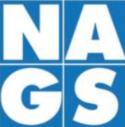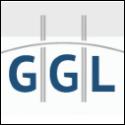Lithuania Gambling: Legal Versus Thriving Illegal Market
It only increases
Lithuanian daily newspaper ‘Kauno diena’ reports the Responsible Gaming Business Association (ALVA), founded a few years ago, advocates responsible business in this area in Lithuania, where customers can enjoy safe and fun gambling in a properly regulated and competitive environment in their free time.
However, the waters in this market are muddied by illegality. Gambling organizers notice that the illegal gambling market is growing every year. According to ALVA head Saulius Petravičius, the state pays little attention to online gambling organized illegally in the country. The illegal market not only harms the state and consumers, but opens the way for fraudsters and money laundering.
The representatives of the association emphasized that every year more and more restrictions and obligations are established in the gambling law for companies that have licenses to organize gambling in Lithuania and pay taxes here. However, illegal gambling operators thrive because no laws apply to them. On the part of the state, impunity prevails against them, and legal business is left alone to deal with these problems.
The head of the association said that he repeatedly tried to draw the attention of the authorities: “Last year, we conducted two experiments – we easily connected to the websites of companies offering illegal gambling services, created gambling accounts, replenished them with funds from the accounts of Lithuanian financial institutions and stole them.” The experiments were conducted under the supervision of the bailiff, and their results, together with the recorded factual circumstances, were handed over to the LPT, the Ministry of Finance (FM), the General Prosecutor’s Office, and the legislators.”
Sometimes it’s hard to judge rankings or ranking because it’s not entirely clear how it’s calculated. It must be understood that we are talking about an illegal market, the scale of which is extremely difficult to grasp.
Unfortunately, according to ALVA, the conducted experiments did not attract the attention of the aforementioned institutions.
S. Petravičiaus says that neither the state nor the business currently has official data on the extent of the spread of illegal gambling, but gambling organizers are monitoring the situation in the market and see an increase in the number of websites offering illegal gambling on the Internet, accepting players and their monetary contributions from Lithuania. Advertisements are spreading on the Internet and social networks, promoting gambling methods that are prohibited according to the legal acts in force in Lithuania.
Social damage
By entering “online casino” or similar keywords in Google search, you can easily find websites that provide illegal gambling services in Lithuania. They offer various bonuses and gifts to customers, although from 2021 summer companies registered in Lithuania can no longer do this.
According to the representatives of the association, these circumstances, together with the “favorable tax conditions” and the higher percentage of the winning fund offered as a result, are a significant competitive advantage for illegal organizers.
LPT has blocked payments to the accounts of more than 155 companies organizing illegal gambling and access to more than 1.4 thousand. websites that organize illegal gambling.
ALVA is convinced that this ratio is due to the fact that once access to one website is restricted, its address is quickly replaced by another, usually with a single number added to it. And the illegal celebration continues.
“The illegal market not only causes damage to the state and society, but also opens the way for fraudsters and money laundering. In addition, users’ personal data and their paid money are not protected, and those for whom gambling already poses a risk due to addiction cannot use the self-control instruments applied in the state and in legally operating companies, such as the self-restriction register and the like,” ALVA head S. Petravičius.
ALVA 2022 has repeatedly called on the LPT to conduct an investigation into whether people who have submitted applications to the LPT’s register of persons who have limited the opportunity to gamble actually succeed in refraining from participating in gambling, both legal and illegal.
LPT replied to the association that it was possible to interview only 39 persons, half of whom did not answer the most important questions. ALVA representatives are surprised – during the first 2023 almost 9,000 people submitted applications to the register in half a year. persons, of whom the LPT was able to interview only 39, and to receive answers from only half.
Based on research
The Gambling Supervisory Service talks about the illegal gambling market based on the 2021 According to a study conducted by H2 Gambling Capital, the results of which showed what share of the European remote gambling market is made up of gambling on licensed sites, that is, in which countries European gamblers usually gamble legally.
“The LPT, in cooperation with the Gambling Supervisory Authority of the Kingdom of Denmark “Spillemyndigheden”, received the results of the aforementioned study, which they want to review and share with you, because in Lithuania there are still those who speak out and believe that the illegal gambling market in the country occupies a large part and frequent gamblers choose to gamble illegally,” reads the reply sent to “Kaunas diena”.
During the research, it was assessed how many gamblers gamble legally on the Internet, at licensed gambling operators in the country, and how many gamble illegally.
“From the results of the conducted research, it can be seen that Lithuania is among the top ten countries in the EU where more people choose legal remote gambling sites and occupies the seventh place. More precisely, 85 percent. gambling takes place in the legal remote gambling market, the illegal market accounts for 15 percent,” Lithuanian gambling officials said.
According to this study, in 2021 In Lithuania, income from the legal and illegal gambling market on the Internet, paid and unpaid taxes was distributed as follows: licensed remote gambling had almost 102.2 million. EUR of income and paid almost 13.3 million. euro taxes. Illegal remote gambling in 2021 had about 18 million EUR income and did not pay almost 2.4 million. euro taxes.
It is announced that the total gambling revenue of the Lithuanian gambling market in 2023 nine months amounted to 161 million euros. 107 million earned from remote gambling. euros.
“Taking into account the data presented, it is necessary to note that Lithuania is one of those European countries that actively blocks illegal gambling websites. Currently, the list of Illegal Gambling Operators, which is constantly updated and supplemented by the LPT, includes as many as 1,462 domains,” said the representatives of the responsible institution.
The service also emphasized the fact that illegal websites are effectively blocked – not only domains are closed, but mandatory instructions are also given to payment, credit or other financial institutions to stop financial operations related to an entity engaged in illegal remote gambling activities.
Limits, but not those
However, representatives of legal gambling organizers were skeptical of the research results provided by LPT, simply because the 2021 assessment of the situation, up to advertising and other restrictions applied to legal organizers.
“Sometimes it’s difficult to judge rankings or rankings because it’s not entirely clear how it’s calculated. It must be understood that we are talking about an illegal market, the extent of which is extremely difficult to grasp, especially because we are talking about a shadow market on the Internet, which erases the borders of states and continents,” noted Mantas Zakarka, head of the Association of Lithuanian Gaming Operators.
According to M. Zakaraka, the members of the association always took the position of making efforts to keep the shadow market as small as possible. It is said that the regulation should be such that people have no incentive to use that shadow market, and not just be guided by how we look among other states.
The experiment described earlier about the possibility to log in and play on an illegal site was carried out before the later restrictions on legal gambling operators. Legal gambling organizers were restricted from advertising, gambling-encouraging gifts and other means of strengthening friendship, while illegal ones could continue to advertise and offer gifts to visitors.
“Usually when proposing or making decisions related to this sector, we don’t talk about the shadow, we forget that the shadow market harms both people and the state budget. I understand the desire to tighten and regulate, but are we sure that that tightening or regulation will solve the real problem?” M. Zakarka asked rhetorically.
Legal organizers called it progress that these issues are being discussed in public more and more often. Illegal Internet services are difficult to both detect and assess their true extent.
According to M. Zakarkas, they like to point fingers, using the example of addicted people: “Look at how bad the advertisements are, what they have done, but maybe that person is not even engaged in that activity in companies licensed in Lithuania. And if that is the case, then absolutely nothing protects him – neither our laws, nor the LPT. You want to educate people about what the shadow is and why it is evil.”
Addictive
When monitoring illegal remote gambling activities and aiming to carry out activities more efficiently, the LPT first sends warnings to identified entities that they are conducting illegal activities in Lithuania and must stop them immediately, and only then are investigations into illegal remote gambling activities carried out.
In addition, notices are sent to other financial institutions that do not have a license and do not carry out their activities in Lithuania, but are identified during the investigation of an illegal operator of remote gambling, as well as information notices to the supervisory authorities of those countries that the entity to which the institution has issued a gambling license , is illegally operating in the Republic of Lithuania.
According to LPT representatives, blocking of domains of companies providing illegal remote gambling services in Lithuania was significantly accelerated and facilitated by the possibility of blocking several mirror sites at once.

Rated by: Gambling watchdog accused of incompetence. (Photo of the Lithuanian Supervisory Service)
Alternative sites that operate at the same time, but have different domain names, are managed by the same entity, have the same appearance, have the same brand, and can be accessed using the same login data – e-mail address, player’s name – are called mirror ID and/or password.
It seems that the LPT was so affected that it was good for Lithuania in 2021. the results of the study, that when assessing the possible risks of persons addicted to gambling to get involved in illegal gambling, it was limited to a laconic observation: “The LPT does not receive complaints from gamblers about illegal gambling organizers, it does not have information about initiated pre-trial investigations.”
However, the risk remains in the absence of complaints. Licensed gambling organizers must join the register of persons who have voluntarily restricted themselves from gambling and must keep a watchful eye so that some unruly person does not suddenly start gambling. If the client has submitted a request to the registry, he is not allowed to gamble.
However, illegal gambling organizers are not connected to this register, and persons who have submitted requests to restrict gambling opportunities can gamble on illegal websites without any problems.
It is not uncommon for relatives to force a person to submit an application to the registry, the person submits and it seems to those around him that the gambling problem is solved, but such a person continues to gamble on sites offering illegal services.
ALVA distinguishes that the negative effects of illegal activities strengthen the negative reaction of the public and politicians, as a result of which legally operating gambling organizers experience the negative effects of tightening regulation.
Looking for solutions
Both the EU and countries around the world face the challenges of illegal gambling. The FM is responsible for the formation of state policy in Lithuania. Its representatives seconded the research reported by LPT and pointed out that the legal regulation and applied practice in Lithuania, in implementing measures against operators of illegal remote gambling activities, is one of the most effective in the European context.
Not all countries, applying sanctions against the operators of illegal gambling activities, block payments and access to such a website, as is done in Lithuania.
18 million euros – both in 2021 the organizers of illegal remote gambling who did not pay almost 2.4 million received income. euro taxes.
“FM, in order to fight more effectively against illegal remote gambling activities, is considering the possibility of changing the current blocking scheme for payment transactions related to companies conducting this activity in Lithuania,” the ministry revealed the plans.
According to the current legal regulation, mandatory instructions to financial institutions to block payments to companies providing illegal remote gambling services in Lithuania are executed by a court decision, after identifying and blocking the website offering these services.
The Ministry is considering changing this scheme: “Financial institutions could only carry out payment operations with gambling companies included in the so-called “white list”. This list would include those companies that have been issued licenses and permits to organize gambling in Lithuania in accordance with the procedure established by law.”
It goes without saying that payment transactions for companies offering gambling services that are not on this list would be blocked. “Given that the planned changes would affect all payment, credit or other financial institutions, including FinTech payment service providers, the proposal is currently being evaluated and will be submitted for further discussions in the first half of next year,” said the FM.
The Ministry emphasized that the system of blocking illegal gambling sites operating in Lithuania is considered one of the most effective in Europe, but does not deny knowing that even blocked sites are tried to be bypassed in various ways:
“This problem is not only relevant for the gambling sector, so supervisory authorities facing similar challenges are cooperating with each other and constantly looking for new technological solutions to make the blocking of illegal sites as effective and efficient as possible.”
SOURCE: Kauno Diena.




























